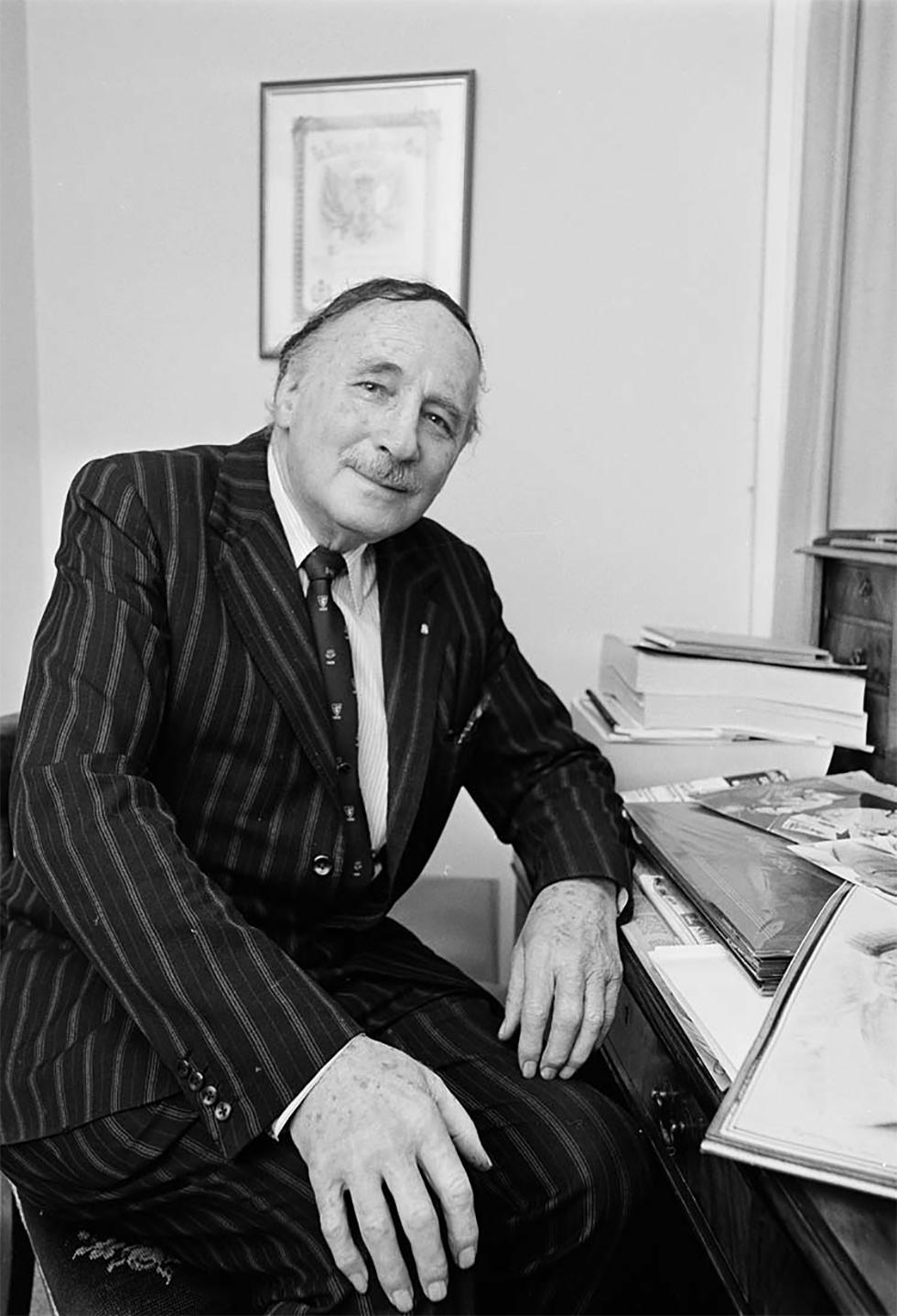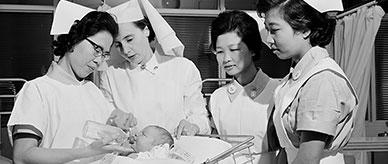


About this record
This black-and-white photograph shows Sir Edward 'Weary' Dunlop seated at the desk in his office. Turned toward the photographer, he is formally dressed in a suit and tie and sits in a fairly relaxed pose with his right hand resting on his knee and his left elbow on the desk. The photograph was taken by the Australian Information Service on or before 1 September 1986.
Educational value
- By the time this photograph was taken in 1986 when he was nearly 80 years of age, Sir Edward 'Weary' Dunlop (1907–93) was one of Australia's most revered citizens. He was celebrated not only for his role in saving lives during World War II (1939–45) on the Thai-Burma Railway but also for his postwar work in promoting Australian-Asian relations. Australian of the Year in 1976, Dunlop was named one of the 200 Great Australians in 1988. There are statues to him near the Shrine of Remembrance in Melbourne and at his birthplace in Benalla in country Victoria.
- Dunlop was commander of No. 1 Allied General Hospital, Bandung, when Java fell to the Japanese in 1942. He subsequently became a prisoner of war (POW). He and other POWs were transferred to Singapore, and on 20 January 1943 the Japanese sent him to Thailand in charge of 'Dunlop Force', a group of around 1000 POWs assigned to work on the Thai-Burma Railway. Between 1942 and 1943, about 2650 Australians died working on the Railway.
- Dunlop was widely admired for his tireless efforts to care for wounded, malnourished and sick POWs who would otherwise have died or been executed. Despite his own medical problems and at great risk to his own safety, he stood up to the Japanese soldiers on behalf of his men, and he coped with severe shortages of equipment and supplies and rudimentary surgical conditions. His nickname, derived from his surname (Dunlop, Dunlop tyres, tired, 'weary'), became famous in POW ranks. In 1989 he published the diaries of his war experience.
- After the war Dunlop was deeply committed to the development of medicinal education in South-East Asia and to fostering close ties between Australia and the region. He co-founded the Australian-Asian Association and promoted reconciliation with Japan. His ties with Thailand remained close and he helped young Thai surgeons to study in Australia. In 1993 he was made a Knight Grand Cross (1st Class) of the Most Noble Order of the Royal Crown of Thailand.
- In the postwar years Dunlop continued his medical career, particularly his work as a surgeon, and in 1964 he was appointed Senior Consultant at the Royal Melbourne Hospital. By the time he retired as a surgeon in 1967 he had pioneered new but somewhat controversial techniques in his specialist field of gastro-oesophageal surgery. Dunlop was knighted in 1969 recognition of his ongoing contribution to medicine, which he continued to practise until well into his 70s.
- After the war Dunlop remained concerned with the health and welfare of ex-service personnel. In 1986 he devoted much of his time to ensuring the ongoing funding of medical research that would benefit veterans and other Australians, through the establishment of the Sir Edward Dunlop Medical Research Foundation. Dunlop participated in all aspects of the Foundation and was its first patron. He remained the Foundation's most active fundraiser until his death.
Acknowledgments
Learning resource text © Education Services Australia Limited and the National Archives of Australia 2010.
Related themes
Need help with your research?
Learn how to interpret primary sources, use our collection and more.




